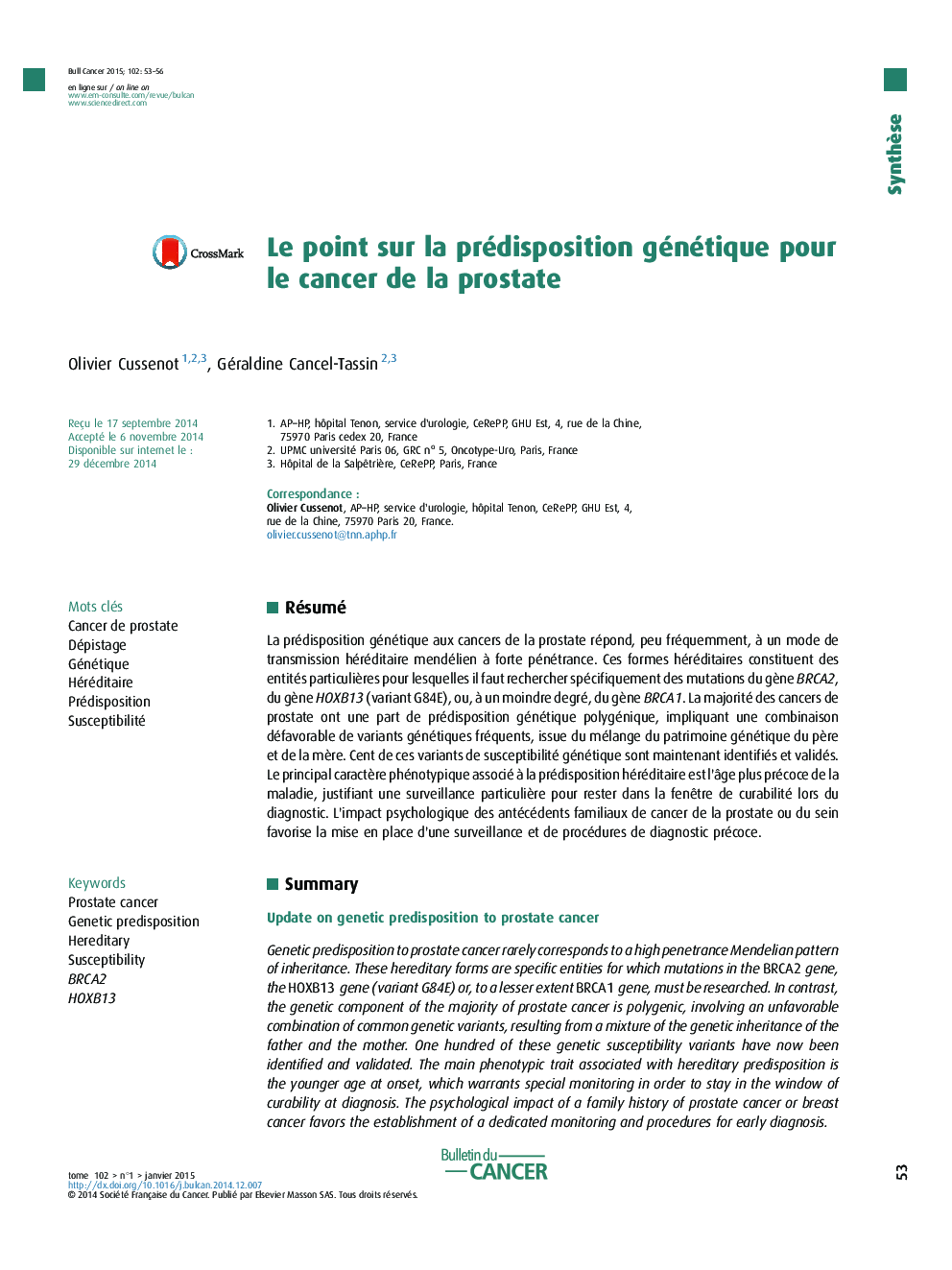| Article ID | Journal | Published Year | Pages | File Type |
|---|---|---|---|---|
| 3978543 | Bulletin du Cancer | 2015 | 4 Pages |
Abstract
Genetic predisposition to prostate cancer rarely corresponds to a high penetrance Mendelian pattern of inheritance. These hereditary forms are specific entities for which mutations in the BRCA2Â gene, the HOXB13Â gene (variant G84E) or, to a lesser extent BRCA1Â gene, must be researched. In contrast, the genetic component of the majority of prostate cancer is polygenic, involving an unfavorable combination of common genetic variants, resulting from a mixture of the genetic inheritance of the father and the mother. One hundred of these genetic susceptibility variants have now been identified and validated. The main phenotypic trait associated with hereditary predisposition is the younger age at onset, which warrants special monitoring in order to stay in the window of curability at diagnosis. The psychological impact of a family history of prostate cancer or breast cancer favors the establishment of a dedicated monitoring and procedures for early diagnosis.
Keywords
Related Topics
Health Sciences
Medicine and Dentistry
Oncology
Authors
Olivier Cussenot, Géraldine Cancel-Tassin,
